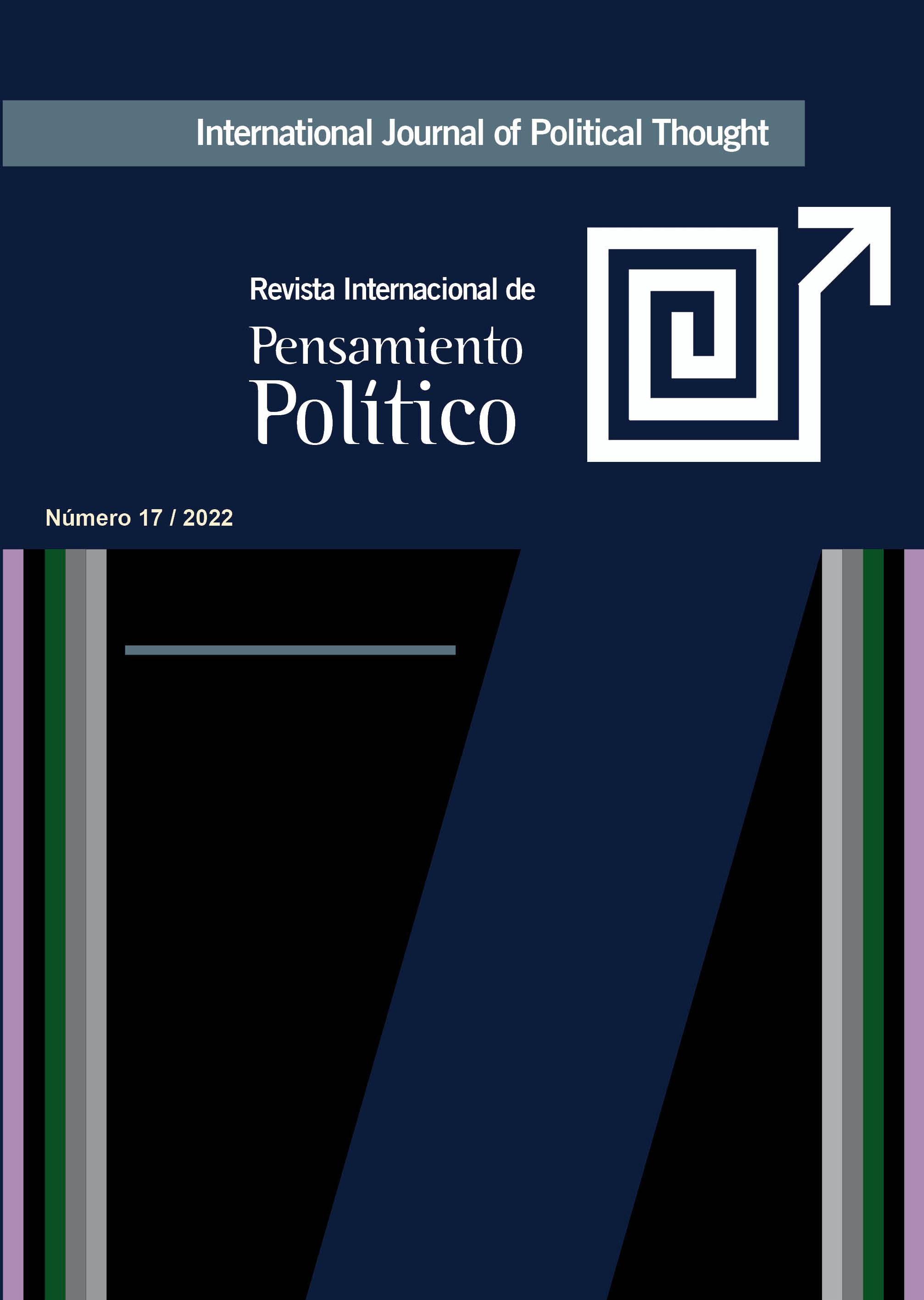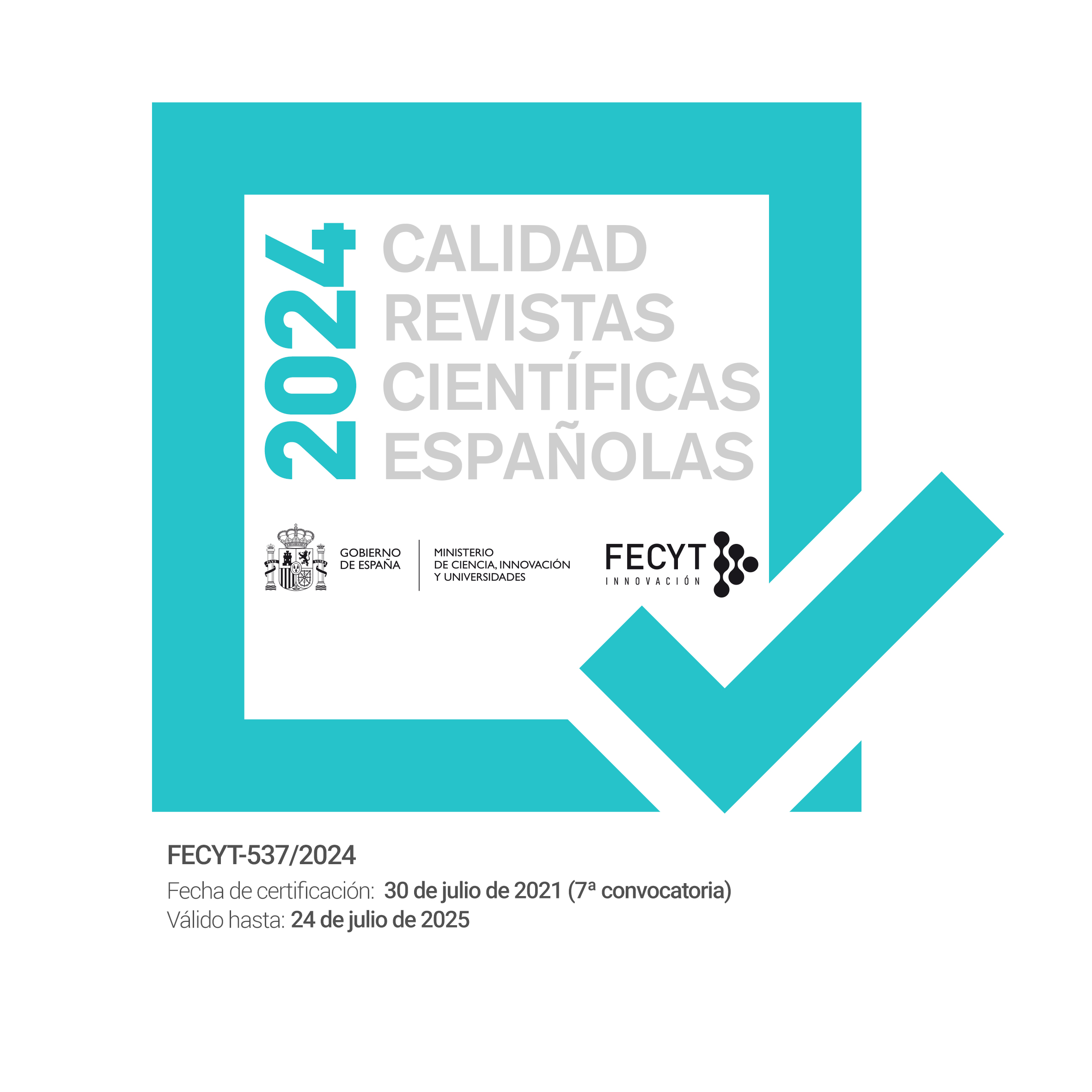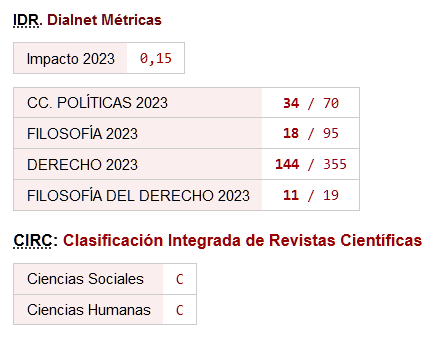Law Disagreements, Defeseability and Principles
DOI:
https://doi.org/10.46661/revintpensampolit.7525Keywords:
law disagreements, interpretation, defeasibility, principlesAbstract
The purpose of these pages is to highlight the fact that many of the decisional disagreements are not such, but rather profound disagreements that have to do with one of the pillars of the foundations of the contemporary rule of law (democratic and constitutional), such as the submission to the law of judicial adjudication, regardless of the justice of the rule or of its application to the specific case. First, I will analyze the concept of disagreements in law, distinguishing between theoretical, interpretative, decisional and axiological disagreements. Secondly, I will focus on decisional disagreements to show that some of them are not such. These are those based on different arguments such as: a) the existence of a spurious interpretative disagreement, b) the argument based on principles and c) the argument of the defeseability of norms. These arguments are an attempt to justify the judge's disagreement on the justice of the rule or its application to the specific case, which exceeds the task entrusted to judges and questions one of the pillars of constitutional states: the submission of judicial decisions to the sources of law.
Downloads
References
Alexy, R. (2001). Teoría del discurso y derechos humanos, Bogotá: Universidad Externado de Colom-bia, Bogotá.
Alexy, R. (2005). La institucionalización de la justicia, Granada: Comares.
Alexy, R. (2009). "Los principales elementos de mi filosofía del Derecho", Doxa, 32, pp. 67-90. https://doi.org/10.14198/DOXA2009.32.04
Atienza, M. (2010). "A vueltas con la ponderación", Anales de la Cátedra Francisco Suarez, 44, pp. 43-59.
Atienza, M. - Ruiz Manero, J. (1996). Las piezas del derecho, Ariel: Barcelona.
Atienza, M. (2009). "La derrotabilidad y los límites del positivismo jurídico", Teoría y Derecho, 5, pp.103-117.
Barberis, M. (2000). "Lo scetticismo imaginario. Nuove obiezioni agli scettici à la génoise", Analisi e Diritto, pp. 1-36.
Barberis, M. (2002). "Seguire norme giuridiche: cos'avrà mai a che fare Wittgenstein con la teoria dell'interpretazione giuridica?", Materiali per una storia della cultura giuridica, 1, pp. 245-273.
Bayón, J. C. (2000). "Derrotabilidad, indeterminación del derecho y positivismo jurídico", Isonomía, pp. 87-117. https://doi.org/10.5347/isonomia.v0i13.555
(2001): ¿Por qué es derrotable le razonamiento jurídico?, Doxa, 24, pp. 35-62.
Bustamante (2010). "Principios, reglas y derrotabilidad", J.A. García Amado-P. Bonorino (coords.), Teoría del Derecho y decisión judicial, España: Bubok, pp.2 05-284.
Da Silva Moreira, P. (2019). Deferencia al legislador : la vinculación del juez a la ley en el Estado Constitucional, Madrid : Centro de Estudios Políticos y Constitucionales.
Dolcetti, A.- Ratti, G. B. (2008). « Los desacuerdos jurídicos y la 'doble naturaleza' del derecho », P. Luque - G. Ratti (eds.), Acordes y desacuerdos. Cómo y por qué los juristas discrepan, Madrid: Marcial Pons, pp. 179-202.
García Amado, J.A. (2010). "Sobre la derrotabilidad de las normas jurídicas", J.A. García Amado-P. Bonorino (coords.), Teoría del Derecho y decisión judicial, España: Bubok, pp.179-204.
Hernández Marín, R. (2006). Las obligaciones básicas de los jueces, Madrid: Marcial Pons.
Hernández Marín, R. (2021). Teoria general de las decisiones judiciales, Madrid: Marcial Pons.
Iturralde, V. (2014). Interpretación literal y significado convencional, Madrid: Marcial Pons.
Iturralde, V. (2022). "Pragmática e interpretación judicial", Sesgos, argumentación y decisión judicial. P. Bonorino (coord.), Cizur Menor (Navarra): Thomson Reuters.-Aranzadi, pp. 13-26.
Laporta, F. (2007). El imperio de la ley. Una visión actual, Madrid: Trotta.
Papayanis, D.M. - Ramirez Ludeña, L. (2012). "Desacuerdos teóricos e interpretación del derecho". Analisi e Diritto, pp. 249-293.
Ratti, G.B. (2008). "Los desacuerdos jurídicos en la jurisprudencia anglosajona". Analisi e Diritto, pp. 301-331.
Raz, J. (1990). Razón práctica y normas. Madrid: Centro de Estudios Constitucionales.
Ruiz Manero (2016). "Rule of law y ponderación." 2016-ruiz-manero-rule-of-law-y-ponderacion.pdf.
Rodríguez, J. Súcar, G. (1998). "Las trampas de la derrotabilidad. Niveles de análisis de la indetermina-ción del derecho". Doxa, 21-II, pp. 403-420. https://doi.org/10.14198/DOXA1998.21.2.28
Schauer, F. (2004). Las reglas del juego. Madrid: Marcial Pons.
Waldron, J. (1999). Derecho y desacuerdos. Madrid: Marcial Pons.
Downloads
Published
How to Cite
Issue
Section
License
Copyright (c) 2022 Victoria Iturralde

This work is licensed under a Creative Commons Attribution-NonCommercial-ShareAlike 4.0 International License.
Open access policy
Free and open access is allowed to any interested party to all the contents of the journal issues, free of charge, being able to print and transfer all the articles, with the only condition of specifying the source and authorship.
The journal: a) does not charge authorship costs for the processing of articles or for their submission, b) maintains copyright for authors without restrictions, c) facilitates authors to keep their publication rights without limitations.
The International Journal of Political Thought is an original work of the Laboratory of Political Ideas and Practices of the Pablo de Olavide University. All articles included in the Journal are original work of their respective authors. This Journal is freely offered to the scientific and academic community at no cost and releases the contents according to the license "Attribution-NonCommercial-ShareAlike 4.0 CC BY-NC-SA" of the Creative Commons project available in the following url: https://creativecommons.org/licenses/by-nc-sa/4.0/legalcode
If you wish to translate or compile any of the articles available here, please contact us at contacto













 ISSN: 1885-589X
ISSN: 1885-589X  Universidad Pablo de Olavide
Universidad Pablo de Olavide